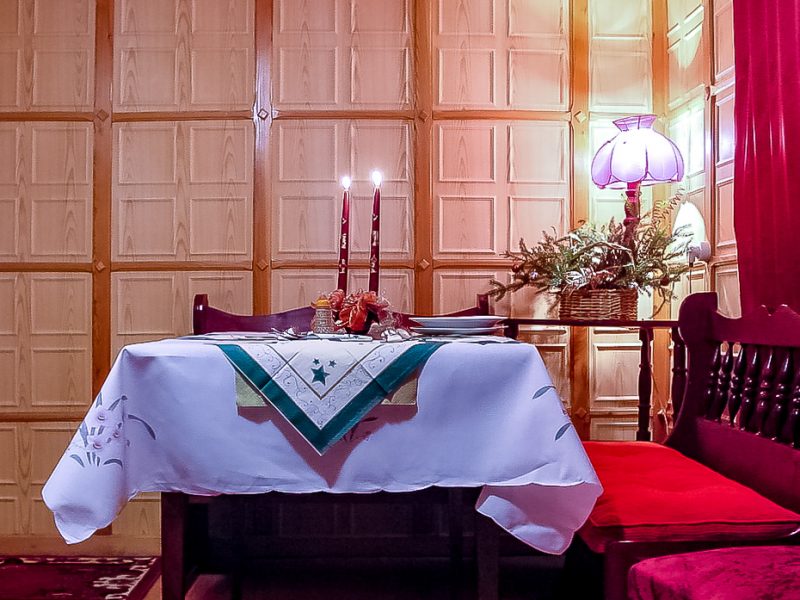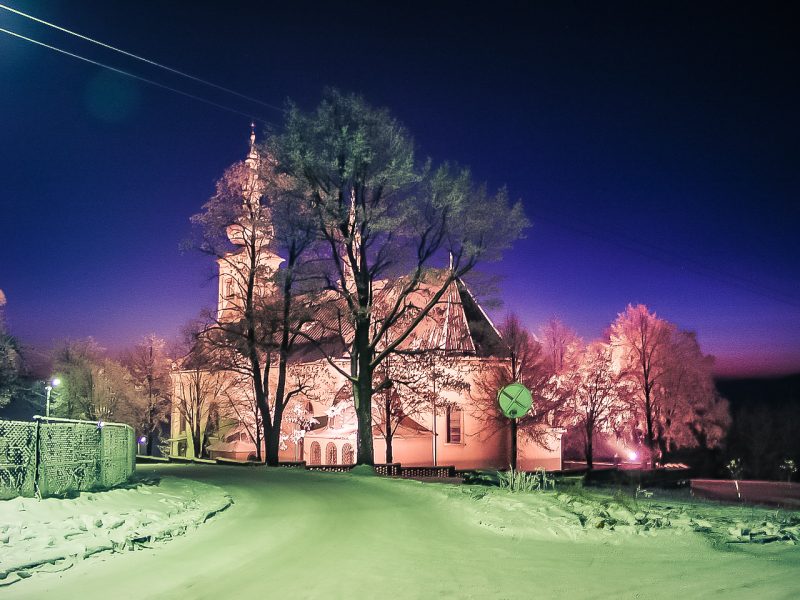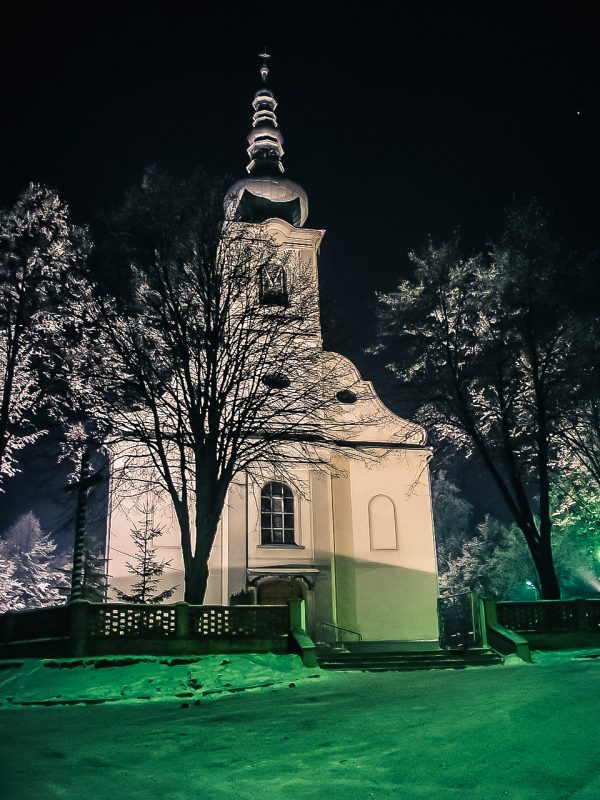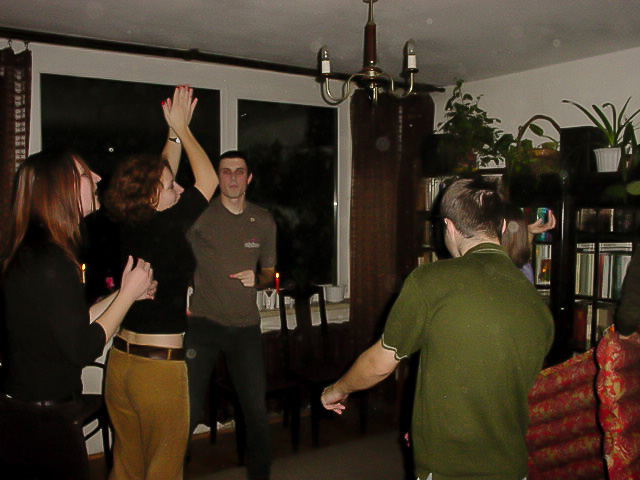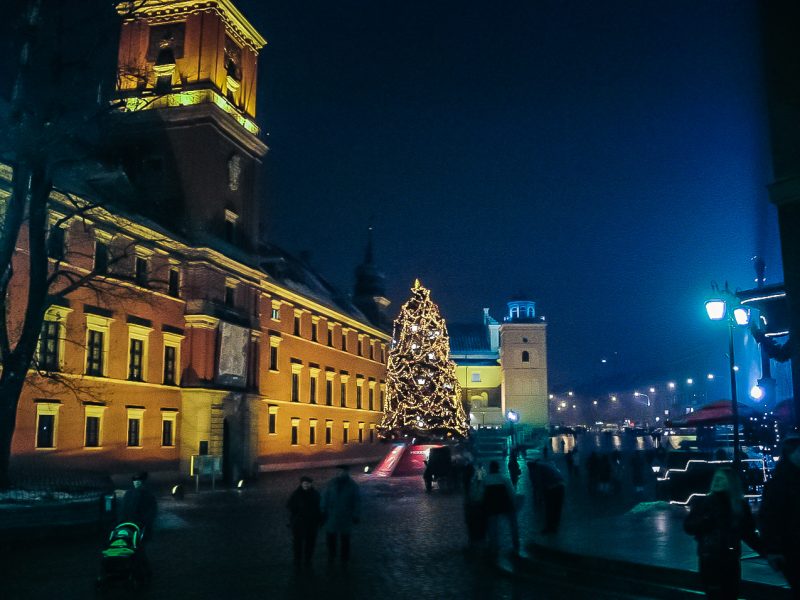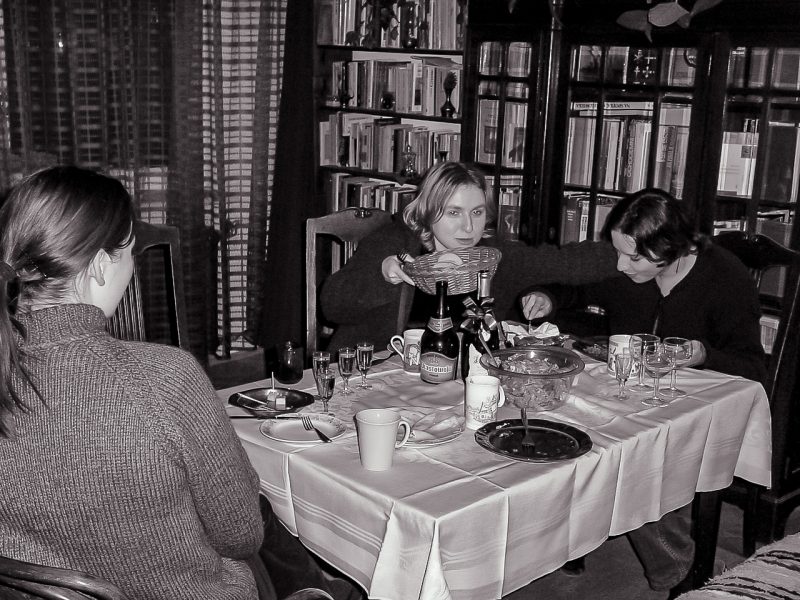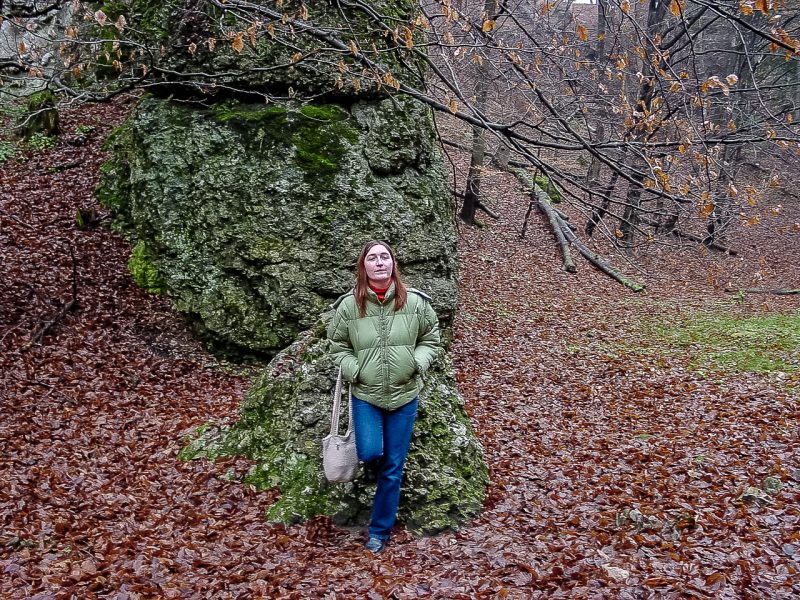To begin with — this album has one of the best openings ever.
And I’m getting frighteningly close to thirty.
And it’s technically — for me anyway — Friday.
Kinga M. (I’ll call her Kinguś now) asked me about Kinga, about her Catholicism and such. I mentioned something about taking grass to Slovakia and Kinguś asked me how Kinga would feel about that. eventually I said, “Maybe she might want to try it.” Kinguś wrinkled her nose and replied, “Nah.” Perhaps she’s right. Perhaps Kinga won’t try it. But the point was that Kinguś was asking whether Kinga surprises me. “All the time,” I thought.
- She’s Catholic but doesn’t like the idea of missionaries.
- She’s Catholic but she doesn’t think sex before marriage is always a sin.
- She’s Catholic but she can laugh at the church.
- She’s Catholic but she doesn’t think non-Christians are “spiritually poor.”
- She’s Catholic but —
There are a thousand and one things about her that surprise me.
And there’s not a single bad song on this album.
I sent a letter to “Whistler” from MD. Or at least I wrote it:
I’m sure you’ve received a bit of email regarding your last piece on MD. I initially had no intention of responding, the more I read, the more I felt it was necessary.
In short, I take issue with several things you say:
“And they are paying the price for this folly. Their lives are lacking in true peace and happiness.” You have never met me. You have never seen into my heart. You have no idea what kind of peace or turmoil my life is in. Like many Christians, you seem incapable of believing that one can be a content, happy atheist.
And, just to clear up any potential confusion, I most decided do NOT want to make everyone else an atheist. Unlike many Christians, I am content to let everyone believe whatever they want. My girlfriend, for example, is a devoted Catholic. (Perhaps that’s not a real Christian by your definition — I know that a lot of Protestant missionaries come to Poland trying to spread “real” Christianity. What a waste of time and resources.) If she were to begin talking about rejecting her faith, I would gladly talk to her about it, but I’d also suggest that she talk to a thoughtful priest about it as well.
”Just think … these spurners of God may someday have to stand before a God that they didn’t even think existed, and to possibly face a fate that will make them wish they had never been born” This is much the same thing that Armstrong said, except it’s toned down. “Believe or suffer the consequences.” If there is a god, and it is so immature as to condemn people for any reason whatsoever, that is not a god I would want to serve. That is a god of conditions: you can live with me forever IF you accept Jesus. You can have eternal happiness IF you’ve accepted me as your Lord and Savior. You can have eternal life IF you keep the Sabbath. Wait — where did that come from? Surely Christianity isn’t just as conditional as Armstrongism?
“Not a good excuse, as the awesomeness of creation literally screams out that there is a creator.” True, the cosmos does indicate design. Does the designer still exist? Does the designer want us to worship it? Is the designer that god described in the Christian texts? Or in the Koran? Or the Vedas? Or perhaps something in between? Or maybe the Buddhists have it right and it’s all an illusion.
”What a shock it will be to them to find that they are in the very same boat as the person that they regarded as the lowest of the low!” Herbert Armstrong duped thousands of people out of their hard earned money to make himself a heaven on earth. I teach kids in Poland for about $300 a month because I want to help people in any way I can, and teaching English seems to be what I’m best at. Now, if god is going to put me in the same circle of hell as Herb, then, as I said before, that’s no god I want anything to do with.
“These Armstrong-created atheists” Armstrong had nothing to do with my atheism. My pendulum swung to the middle, to use your illustration. (My mother likes to use going from one ditch to another, but it’s basically the same thing.) I considered myself a “real Christian” for a while. Finally I just decided that there were too many illogical inconsistencies in Christian theology and the Bible for me to accept it. I prayed about this. I wanted to believe. In the end, I felt nothing. And I think that’s what it all boils down to — some personal experience which one interprets as an encounter with God.
As an aside, I’ll tell a quick anecdote. I once visited a very emotional, charismatic church. An hour of “praise songs,” with everyone standing, waving their arms in the air, swaying, all with their eyes closed. In this experience, your use of the word “addiction” is very apropos: these individuals, “slain by the spirit,” seemed to be experiencing the same sense of lost wonder that I get every time I smoked grass in my younger days. I think their bodies somehow create some sort of chemical/hormonal reaction that produces a state that, from outward appearances, is identical to that produced by marijuana (and I assume various other controlled substances). They choose to interpret this feeling as the presence of God; having experienced it after taking a big hit on a bong, I tend to see it differently — a purely physiological phenomenon. (I don’t think it was for nothing that Marx referred to religion as an opiate.) Of course I could be completely wrong . . .
If you’re interested, though, a very detailed explanation as to why I reject both can be found at my website: glscott.net. The article’s url is
http://glscott.net/htmltxt/nf/rel/xian.html.
Your steps to leaving the “cult of atheism” are very interesting. I’d like to point out, though, that I very readily “admit that [I] ould very well be wrong in [my] beliefs. Face the fact that it just might be possible.” And I “Realize that [I] have nothing to lose by re-examining [my] beliefs.” Do you admit that you might be wrong? I often read theology — not “anti-god” material you spoke of, but theology. Bonhoffer. Luther. Even John Paul II. I’ve read what some argue is the greatest apologetics ever: C. S. Lewis’ Mere Christianity.”(I think he makes some excellent points, but overall, I found too many logical fallacies and linguistic tricks for my taste.) I even read the Bible from time to time.
You know what’s the most amusing thing, though? Your steps for overcoming atheism are very similar to what one might find on an atheist’s site for overcoming Christianity. Did you do this? How did you “Put aside all of the preconceived ideas and one-sided “facts” that you have accumulated regarding the subject under study, and be willing to start a new, unprejudiced investigation from scratch.” I think that’s really impossible, but it’s a good ideal.
It’s a little disturbing that you’re writing about “last laughs” and such. Will god be laughing too? Why would a mature god allow one soul to laugh at another like that? Or rather, create a reality where such is possible? I realize that the Christian god is somewhat temperamental — ordering genocide in part one of his book and then dying for us in part two — but I never imagined that the Christian god was also so childish.
In conclusion, I’d just like to ask that you, and other Christians, stop assuming that just becomes someone doesn’t believe the same thing you do that he cannot possibly be as happy as you are. I find that the most bizarre aspect of Christianity: Do unto others and all that, and yet, how many Christians would like someone coming around trying to convert them to atheism, Buddhism, Taoism, Judaism, or any other worldview? Live and let live. I’m not trying to make anyone an atheist; pay me the same respect about your beliefs.
At midnight mass on Christmas Eve, the priest mentioned something about those who hadn’t come to mass that night. “All they needed was a little faith. Just a little faith,” Kinga reported him as saying. “When he said that,” she continued, “I looked over at you.”
“You should have said, ‘So then how can you explain this atheist sitting beside me?’” I said.
She looked at me very seriously, then asked, “Why do you come?”
I went to two masses this week. I’ve been to mass with her in Zakopane, Ojców, and I think Kraków. Why? “Because I don’t want you to go alone,” I answered.
“For companionship?” Damn — her English always impresses the hell out of me.
“I guess.”
Kinguś asked me about whether it was serious or not. “I mean, you always go around here saying, ‘She’s mine,’ and ‘I love her.’”
“I’m getting a little carried away,” I thought. But I said, “I’m not entirely serious.” Covering my ass with a lie, I guess.
“So there’s no chance you’ll be here next year,” she asked with raised eyebrows.
“Oh, I’m sure I’ll be here. In Poland, anyway. Besides, it doesn’t depend on me. If she said, ‘I don’t want you. I changed my mind,’ then it’s a different story. But she’ll have to say that — I won’t be saying anything like that.”
Kinguś smiled. “She won’t say that.”
“I hope not,” concluded.
Starting tomorrow, Kinga and I will be spending four days and four nights together. The four days — there’s not much to that. I know what we’ll do. We’re going to go to the castle that’s nearby. We’re going to hang out in Namestovo. We’ll probably just relax a bit around the house if it’s a nice place. Simple and complicated at the same time.





